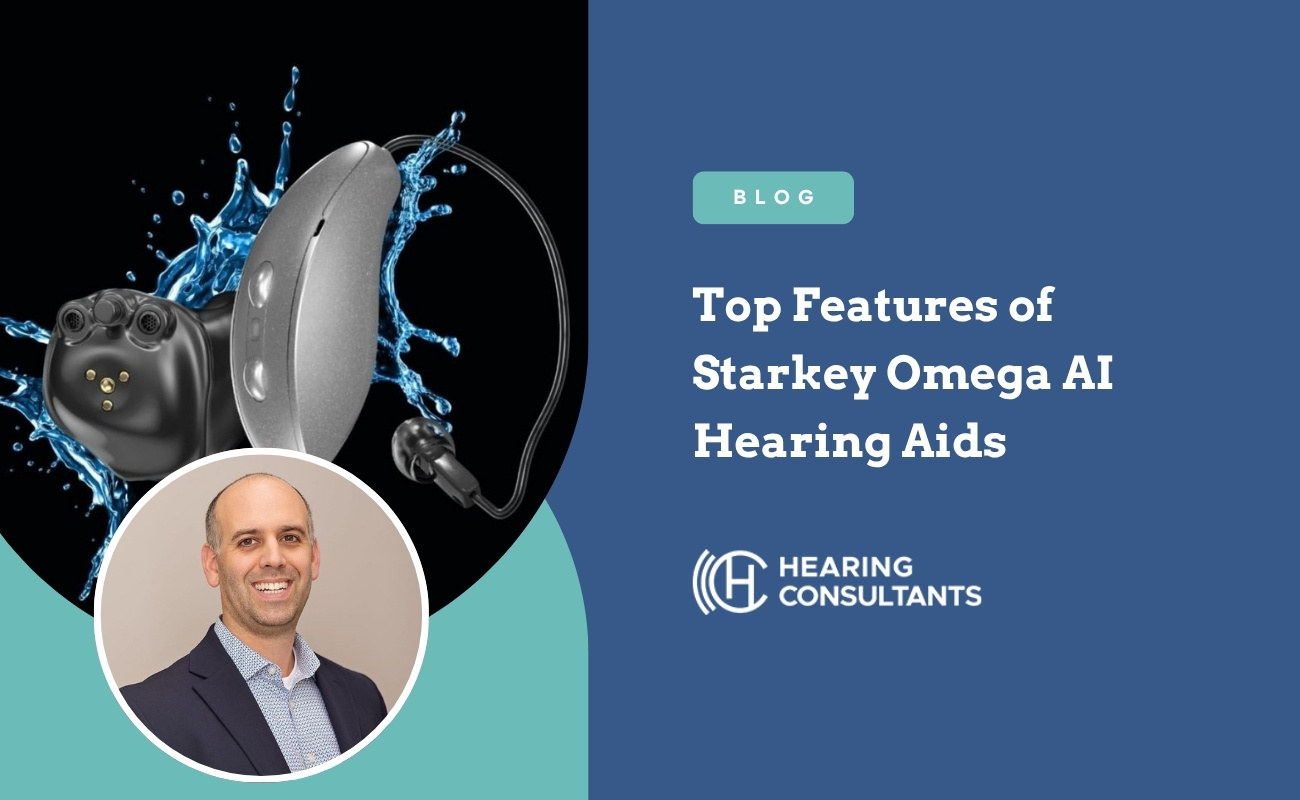The Connection Between Stress, Anxiety, and Tinnitus Perception

Many people who experience tinnitus—that persistent ringing, buzzing, or clicking sound in the ears—notice that stress and anxiety can significantly affect how they perceive these sounds. At Hearing Consultants, we regularly see patients whose tinnitus symptoms worsen during stressful periods. Understanding this connection can help manage tinnitus more effectively.
How Tinnitus Works
Tinnitus is a non-physical noise perceived by the individual, typically described as a buzzing, ringing, or clicking sound. According to the American Tinnitus Association, this condition affects approximately 50 million adults in the United States alone. While tinnitus is often just an annoyance, it can escalate to impact concentration, sleep, work, and personal relationships in severe cases.
Most people experience subjective tinnitus, which is only audible to the person affected. This type accounts for over 99% of all cases. A rarer form is pulsatile tinnitus, where the sound beats in sync with the individual's heart.
The Stress-Tinnitus Connection
The relationship between stress and tinnitus forms a challenging cycle. Stress can trigger or worsen tinnitus, and the presence of tinnitus can cause additional stress. Here's how this cycle typically works:
How Stress Affects Tinnitus
When we experience stress, our bodies release hormones like cortisol and adrenaline as part of the "fight or flight" response. These hormones can:
- Increase blood pressure
- Tense muscles, including those in the ear and jaw
- Heighten sensory awareness
- Reduce our ability to ignore background noises like tinnitus
Under stress, the brain becomes more alert to potential threats, making it harder to tune out the tinnitus sounds that might otherwise fade into the background. The body's stress response can also cause changes in blood flow and increase muscle tension around the ears, potentially amplifying tinnitus symptoms.
How Tinnitus Affects Stress Levels
Living with persistent tinnitus can be a source of stress and anxiety itself. Many patients report:
- Frustration at the constant sound
- Anxiety about whether the tinnitus will ever go away
- Stress from sleep disruption
- Worry about how tinnitus might affect their career or social life
This creates a difficult feedback loop—stress worsens tinnitus, which causes more stress, which further worsens tinnitus.
The Anxiety Factor
Anxiety disorders can complicate tinnitus management. People with anxiety may:
- Pay excessive attention to their tinnitus
- Catastrophize about what tinnitus might mean for their health
- Experience panic when tinnitus increases
- Avoid situations they fear might worsen their tinnitus
For those with both anxiety and tinnitus, treatment approaches that address both conditions often yield the best results.
Breaking the Cycle: Management Strategies
At Hearing Consultants, we take a comprehensive approach to managing tinnitus that includes addressing its psychological components. Here are some strategies that can help break the stress-tinnitus cycle:
Sound Therapy
Using external sounds to mask or distract from tinnitus can reduce its perceived intensity. Options include:
- White noise generators
- Nature sounds
- Ambient music
- Hearing aids with tinnitus masking features
Our audiologists can help determine which sound therapy approach might work best for your situation.
Stress Management Techniques
Reducing overall stress levels can help minimize tinnitus perception:
- Deep breathing exercises
- Progressive muscle relaxation
- Meditation and mindfulness practices
- Regular physical exercise
- Adequate sleep
Cognitive Behavioral Techniques
Working with a therapist trained in cognitive behavioral therapy (CBT) can help change negative thought patterns about tinnitus and reduce anxiety:
- Learning to challenge catastrophic thinking
- Developing healthy coping strategies
- Gradually exposing yourself to feared situations
- Building confidence in managing tinnitus
Tinnitus Retraining Therapy
This combined approach uses both sound therapy and educational counseling to help the brain reclassify tinnitus as a neutral rather than threatening sound, allowing it to fade from conscious awareness.
The Role of Hearing Aids in Tinnitus Management
For many patients with both hearing loss and tinnitus, properly fitted hearing aids can provide significant relief. Modern hearing aids can:
- Amplify environmental sounds, making tinnitus less noticeable
- Include built-in sound generators for tinnitus masking
- Reduce listening effort, which can decrease stress
At Hearing Consultants, we use Real Ear Measurements to ensure the most accurate hearing aid fittings possible, optimizing both hearing improvement and tinnitus relief.
The Latest Hearing Aid Technology for Tinnitus
Several of the hearing aid brands we offer include specialized tinnitus management features:
Widex Allure with Zen Technology
Widex Allure hearing aids feature a tinnitus management program that plays unique Zen tones—musical chimes based on fractal technology that are designed to be both relaxing and unpredictable enough to avoid habituation.
ReSound Vivia and Savi with Tinnitus Sound Generator
ReSound's latest models include customizable sound therapy options that can be adjusted through their smartphone app, allowing users to find the perfect masking sound for their particular tinnitus.
Oticon Intent with Tinnitus SoundSupport
Oticon Intent offers a variety of relief sounds, including broadband sounds (like white, pink, and red noise) and nature-inspired sounds, which can be customized to match your specific tinnitus characteristics.
Phonak Infinio with Tinnitus Balance
The new Phonak Infinio platform includes tinnitus management capabilities that can be fine-tuned by your audiologist and adjusted on-the-go through their app.
Starkey Edge AI
Starkey's newest models feature advanced tinnitus technology that allows for personalized sound therapy integrated with their AI capabilities, helping users manage their tinnitus in different environments.
When to Seek Professional Help
If you're experiencing tinnitus that:
- Appears suddenly
- Is accompanied by dizziness or hearing loss
- Severely impacts your quality of life
- Worsens with stress or anxiety
It's time to schedule an appointment with our team. While there's no definitive cure for tinnitus, professional evaluation and management can significantly improve your quality of life.
Schedule a Tinnitus Assessment at Hearing Consultants
At Hearing Consultants in Cincinnati, we understand the complex relationship between stress, anxiety, and tinnitus. Our audiologists, Dr. Timothy Teague and Dr. Amanda Hoffman, are experienced in providing comprehensive tinnitus evaluations and personalized management plans.
We'll work with you to understand your unique tinnitus experience and develop strategies that address both the auditory and emotional aspects of living with tinnitus. Contact us at 513-916-3656 to schedule your tinnitus assessment and take the first step toward better tinnitus management and improved quality of life.
Get in touch with
Hearing Consultants
Contact our clinic to schedule an appointment today!







